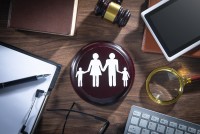Hot Press News
- Fairmont & Raffles Jaipur Announce the Appointment of Ashwin Sharma as Cluster Director of Marketing & Communications
- Fleuromonds Naturals Unveils New Line of Organic Scrub Scented Candles: A Sensory Revolution in Self-Care
- HuntVastuHomes is Now Recognized as the World's First Online Platform That Lists Vastu-compliant Apartments
- Medica Healthcare in Germany: Shaping the Future of Global Health at Düsseldorf 2025
- Voltas launches Flo Series Fans, Designed to Impress, Engineered to Save Energy
- The Braided Rug Company Expands Eco-Friendly Homeware Range in Aberdovey
- Grapes Worldwide crafts an engaging and real-time campaign, Poko’s Day Out for MamyPoko Pants
- Kopyst’s AI Tool Enhances Documentation with Automated Content Updates for Step-by-Step Guides
- SmartTOP Convertible Top Control by Mods4cars now available for Ferrari Portofino M
- Indo-Zimbabwe Film and Cultural Forum Unveils Ethereal African Elegance at 9th Global Fashion and Design Week Noida 2025
- TRC Redefines Its Market Presence by Revamping the Logo
- AAFT Celebrates Convocation of its 124th Batch at Marwah Studios
- Harmony Girl Unveils Trendy Collection of Casual Dresses and Online Jumpsuit Styles for Modern Women
- Free AI Tool for turning Your Images into Creative Prompts for AI Image Generation with Flux AI
- Vietjet Appoints Nguyen Thanh Son as New Managing Director to Lead Next Phase of Growth
 Mail to a Friend Mail to a Friend |
|
     |
Slip and Fall Injuries: What You Need to Know About Compensation
2025-07-08 03:29:57
Legal / Law
1077
The shock and pain of a slip and fall accident can be immediate and debilitating. Beyond the physical toll, financial concerns quickly arise. Medical bills pile up, lost wages strain your budget, and the question of who will be responsible for these mounting costs hangs heavy in the air. If you've been injured in a slip and fall accident on someone else's property, especially if you've sustained a serious injury, understanding your rights to compensation is crucial.
Understanding the Legal Landscape: Premises Liability and Your Right to Compensation
The legal concept of premises liability dictates that property owners have a responsibility to maintain a safe environment for visitors. If you sustain an injury due to a hazardous condition on someone else's property, you may be eligible to seek compensation for your damages. While the specifics of premises liability laws can vary slightly between states, the general principle remains consistent: property owners have a duty to act reasonably to make sure that their premises are safe and warn visitors about any hazards.
There are different classifications of visitors in premises liability cases, and these classifications influence the "duty of care" owed by the property owner. Invitees, which encompass individuals invited onto the property for a business purpose like customers in a store, guests at a restaurant, or attendees of a business meeting, receive the highest duty of care. For invitees, property owners are obligated to conduct regular inspections of the premises for hazards and take steps to either rectify them or warn invitees of the dangers.
Licensees, such as social guests, attendees of a public park sporting event, or those using a shortcut across private property with the owner's knowledge, occupy a legal category with a less stringent duty of care owed by the property owner. In these cases, property owners are generally expected to avoid creating hidden dangers and to warn licensees of any known hazards.
Trespassers generally have no legal protection under premises liability law. Property owners are not obligated to ensure the safety of trespassers unless they are aware of the trespasser's presence and act with willful or reckless disregard for their safety, causing them harm.
Determining Liability: Proving Negligence in a Slip and Fall Case
The burden of proving negligence falls on the injured party in a slip and fall case. To secure compensation, you'll need to establish that the property owner acted negligently, meaning their actions or inaction directly caused your accident and resulting injuries. This requires demonstrating that:
1. The property owner neglected his responsibility for your care. As discussed earlier, the type of visitor you are on the property determines the specific standard of care they must uphold.
2. The property owner failed to comply with their duty of care. This could manifest in various ways, such as failing to fix a broken step, neglecting to clean up a spill, or not removing ice and snow from a walkway in a timely manner.
3. The property owner's breach of care directly caused your slip and fall accident and subsequent injuries. The strength of your claim hinges on having solid evidence to support these elements.
Building a Strong Case: Gathering Evidence After a Slip and Fall Accident
The aftermath of a slip and fall accident can be a whirlwind of shock and pain. Taking the right steps in those moments can significantly bolster your chances of securing compensation for your injuries. Seeking medical attention from a qualified healthcare professional as soon as possible is paramount. A thorough medical evaluation will not only address your immediate needs but also document the nature and extent of your injuries. This documentation creates a link between the accident and your medical condition, serving as powerful evidence later.
Report the accident to the property owner or manager right away. This prompt action establishes a record of the incident and demonstrates you took immediate steps to address the situation. Request a copy of the accident report for your records, as it may contain details that support your claim.
While the scene is fresh in your mind, capture photographs of the area where the slip and fall occurred, if you're physically able to do so safely. These photos should comprehensively document the specific hazardous condition that caused your fall, along with the surrounding environment. If there were any broken objects, spills, debris, or other factors that contributed to the accident, be sure to include them in detail. The more comprehensive your visual record, the stronger your case.
Witness accounts can be invaluable in slip and fall cases. If anyone observed your fall, gather their names and contact information as soon as possible. Witness statements can verify your version of events and add credibility to your claim. Don't hesitate to ask witnesses to provide written statements detailing what they saw, as this can be powerful evidence when negotiating a settlement or presenting your case in court.
All receipts, records and documentation concerning your injuries must be preserved. This includes medical bills, prescription medication costs, transportation expenses to doctor's appointments, and any other out-of-pocket costs incurred as a result of the accident. This detailed financial record will be used when calculating the total amount of compensation you deserve to cover your losses and move forward with your recovery.
Factors Impacting Compensation in Slip and Fall Cases
The amount of compensation you receive after a slip and fall accident isn't a one-size-fits-all proposition. Several factors come into play when determining a fair settlement, and understanding these factors can help you manage your expectations and ensure you're fairly compensated for your injuries.
One of the most significant influences is the severity of your injuries. Serious injuries, like broken bones, traumatic brain injuries, or spinal cord damage, will typically garner a higher settlement compared to minor cuts or bruises. The long-term impact these injuries have on your daily life, ability to work, and overall well-being will be considered.
Medical expenses associated with your injuries are another major component of compensation. This includes everything from emergency room visits and doctor's appointments to hospital stays, physical therapy, surgery, and medication. Keeping meticulous records of all medical bills is crucial, as they serve as concrete proof of the financial burden you've incurred due to your fall.
If you're unable to work while you recover, you're entitled to compensation for your lost income. This can include both your current earnings and future earnings if your injuries have a lasting impact on your ability to work. Documentation such as pay stubs or a letter from your employer can help solidify this aspect of your claim.
Pain and suffering, though more subjective, can also be included in your compensation. The physical pain and emotional distress you endure as a result of your injuries are valid. While there's no set formula for quantifying pain and suffering, having a detailed medical record that documents your pain can significantly strengthen your claim.
Property damage sustained in the slip and fall accident can also be factored in. If your phone shattered or your clothing was ripped during the fall, you may be able to seek compensation for repairs or replacements. Keeping receipts for any repairs or replacements you make will bolster your claim for property damage.
Negotiating a Settlement or Filing a Lawsuit
The aftermath of a slip and fall accident can leave you with significant physical and financial burdens. Negotiating a fair settlement with the property owner's insurance company is often a viable option to recoup your losses. An experienced personal injury lawyer can be your strongest advocate throughout this process, negotiating on your behalf to ensure you receive a settlement that adequately covers all of your damages.
A skilled lawyer understands the intricacies of premises liability law and can effectively present the evidence that demonstrates the property owner's negligence and its direct link to your injuries. Their experience allows them to navigate the complexities of insurance negotiations, ensuring you don't undervalue your claim and receive a settlement that truly reflects the impact of the accident on your life. If the insurance company is unwilling to offer a fair settlement and attempts to downplay the severity of your injuries or deny liability altogether, filing a lawsuit may become necessary. An attorney can guide you through the legal process, represent you in court, and fight for the compensation you rightfully deserve.
Why the Legal Representation is Important in Slip and Fall Cases
In the wake of a slip and fall accident, you might find yourself facing a tidal wave of medical bills, lost wages, and the daunting complexities of the legal system. Consulting with an experienced personal injury lawyer can help protect your rights and increase your chances of securing fair compensation. An attorney can be your strongest asset throughout this process, providing a multifaceted approach to your case.
A skilled lawyer is capable of conducting a detailed investigation of your accident. This process involves gathering evidence, interviewing witnesses, and pinpointing the liable party. With a comprehensive understanding of the incident, your lawyer can then determine the true value of your case. This involves assessing the extent of your damages, including medical expenses, lost wages, and the impact on your overall well-being. Calculating these factors, your lawyer can ensure you receive a settlement that reflects the true cost of the accident on your life.
An attorney's can also negotiate with the insurance company on your behalf. Insurance companies are notorious for attempting to downplay the severity of claims, and a skilled lawyer possesses the knowledge and tenacity to advocate for a fair settlement that includes all eligible damages. They will present a compelling case that highlights the property owner's negligence and its direct link to your injuries.
If the negotiations with the insurance company fail to yield a fair outcome, your lawyer will be by your side every step of the way through a lawsuit. They will represent you in court, presenting a strong case and fighting for fair compensation. With an experienced personal injury lawyer by your side, you can navigate the legal system with confidence, knowing that your rights and best interests are protected.
Slip and fall accidents may critically impact your life. By understanding your rights, gathering strong evidence, and consulting with an experienced personal injury lawyer, you can increase your chances of securing the compensation you need to move forward with your recovery. Don't hesitate to seek legal counsel to ensure you receive fair compensation for the physical, emotional, and financial burdens you've endured after a fall.











